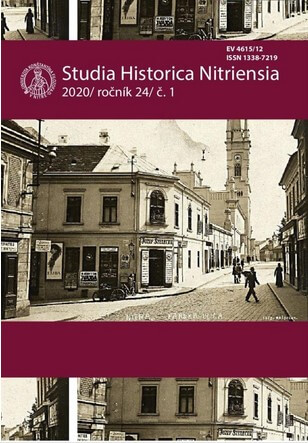Proměny společenského postavení uherských tolerančních pastorů v Čechách a na Moravě v období kolem roku 1800
Transformations of Social Status of Hungarian Toleration Preachers in Bohemia and Moravia around 1800.
Author(s): Sixtus Bolom-KotariSubject(s): Christian Theology and Religion, Cultural history, Social history, 18th Century, 19th Century, Sociology of Religion
Published by: Univerzita Konštantína Filozofa v Nitre, Filozofická fakulta
Keywords: Social Structure; Socio-professional Group; Intelligentsia; Protestantism; Patent of Toleration; Toleration Preachers; Hungary; Bohemia; Moravia; 1800;
Summary/Abstract: The study analyses initial determination and development of social roles of the Hungarian Protestant pastors’ socio-professional group of the Augsburg and Helvetic confessions, “new born” in Bohemia and Moravia as a result of the Patent of Toleration of Emperor Joseph II. In the period 1781—1815, this group numbered about two hundred individuals. The aim is an assessment of the integration of “foreign” and “strange” pastors into the post-baroque Czech society. Descriptions of the first meetings with pastors testify to the widespread interest, especially from Czech countryside residents, motivated primarily by the curiosity of the unknown and exotic. The author investigates pastors’ strategies to overcome language and cultural barriers, as well as the evolution of social status fluctuating between the elite and the servitorship, which stabilized during the first third of the 19th century.
Journal: Studia Historica Nitriensia
- Issue Year: 24/2020
- Issue No: 1
- Page Range: 93-110
- Page Count: 18
- Language: Czech

